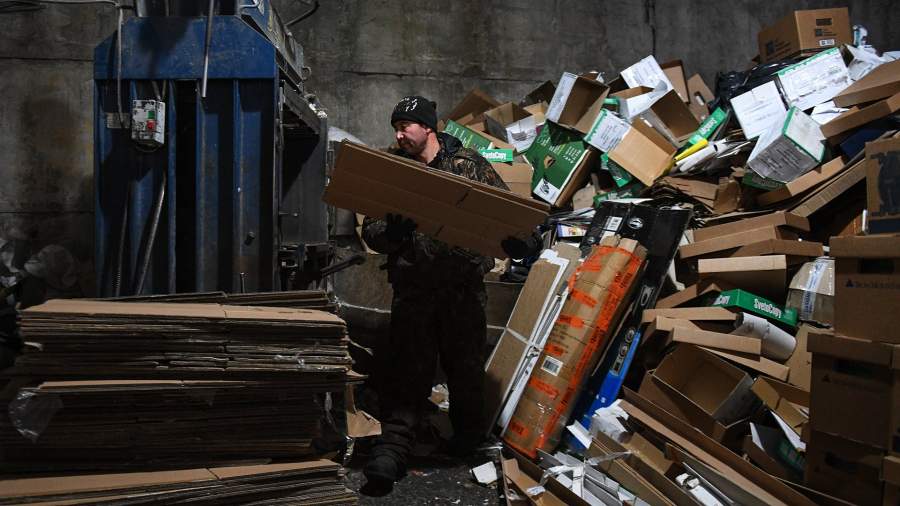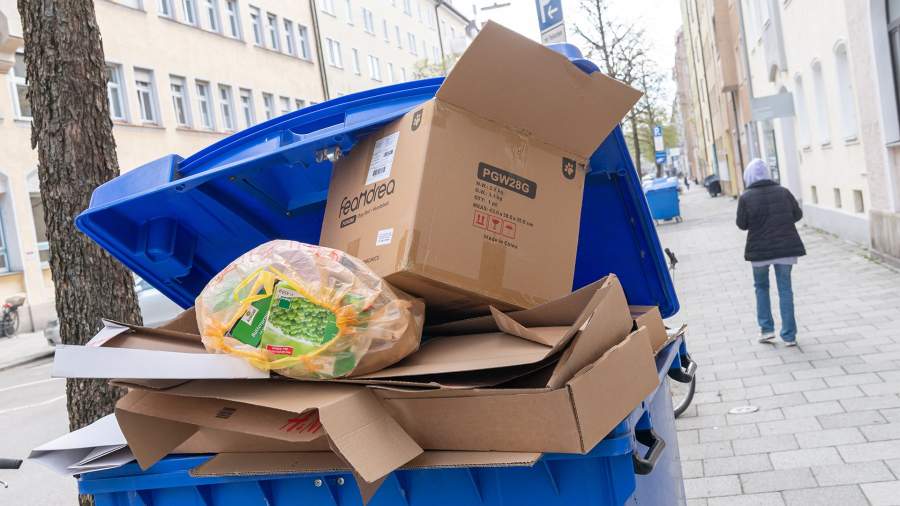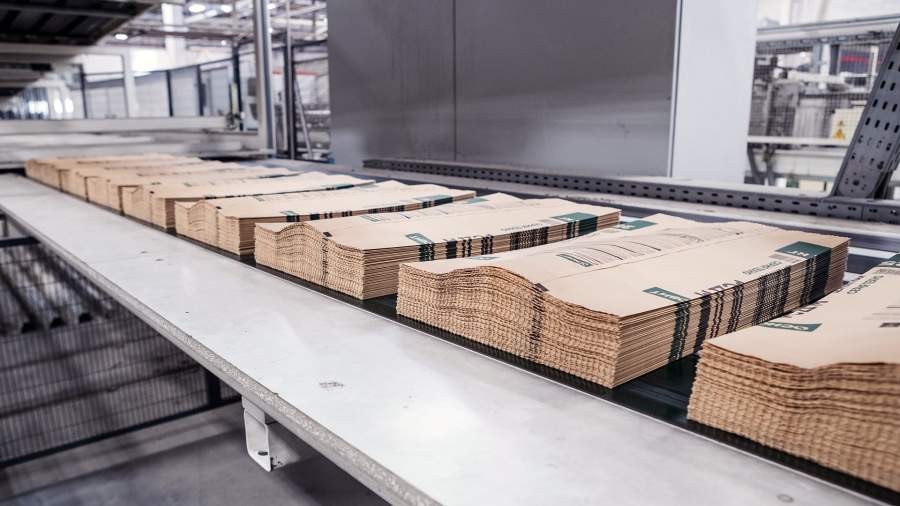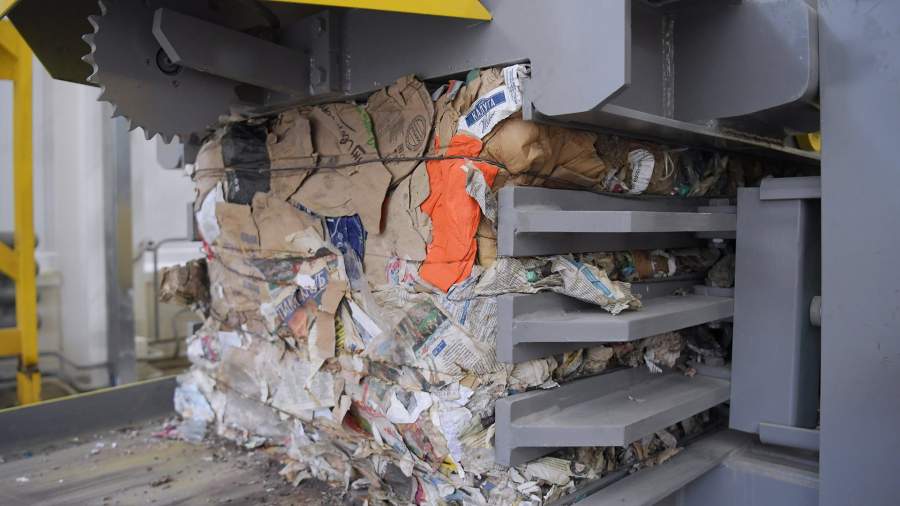The business asked to remove barriers to the import of waste paper into Russia from the EU, where its cost is lower. Now there is a five percent duty on the import of this recyclable material, as well as a number of legislative restrictions due to the possible presence of contamination in it. This is stated in a letter from the League of Waste Paper Converters to the Ministry of Industry and Trade (Izvestia has it). At the same time, there is a shortage of waste paper in Russia, and the revision of the existing order, according to manufacturers, will help to curb the rise in prices for packaging based on cardboard – in particular, for sugar, flour, margarine, sweets – and, as a result, for these products themselves. Their cost may drop to 2%, according to market participants. At the same time, many experts already now doubt the effectiveness of this initiative.
Table Of Contents
Three options
The SRO Association “League of Waste Paper Converters” (uniting 75% of participants in the waste paper collection and processing industry in the Russian Federation) appealed to the Ministry of Industry and Trade with a proposal for measures to stabilize the situation in the industry. In particular, the association proposes to abolish restrictions on the import of waste paper to Russia – to establish a zero rate of import customs duty (now 5%) and send a note to the European Union (EU) to adjust the procedure for exporting this recyclable material to our country. Izvestia got acquainted with a copy of the document.
As the director of the Information and Analytical Center for Foreign Trade Activity Andrei Tochin explained to the publication, in the early 2000s, the EU countries improved their legislation on waste management. Then they asked other countries on what terms they can sell them recyclable materials.
– There were three options to choose from: “complete ban”, “notification and confirmation” and “no restrictions”. Russia has chosen the second option. This means that the responsible government agencies of the two parties must agree on the deal with each other. This is, in principle, a long process, while such a body has not been defined in the Russian Federation, – said Andrey Tochin.
Today in Russia there is a shortage of waste paper for recycling – only 1% of all household waste is spent on recycling this recyclable material, Denis Kondratyev, managing partner of the information and analytical agency for the pulp and paper industry, Center for System Solutions, told Izvestia.
Separate waste collection is practically not developed in the country. The existing small collection in apartment buildings cannot provide the volume required for processing facilities, said Natalya Belyaeva, deputy chairman of the committee for processing waste and secondary resources of Delovaya Rossiya. As a result, an average of 4 million tons of potential recyclable materials are sent to landfills, Denis Kondratyev emphasized.
“At the same time, in the countries of the European Union, separate collection is developed at a high level and there is a surplus of waste paper,” said Denis Kondratyev.
The cost of various types of waste paper in Russia is about 40% more expensive than in Europe, he said. For example, a ton of cardboard waste paper in the Russian Federation costs 25 thousand rubles, and in the EU – 15 thousand, said Denis Kondratyev.
“To curb the rise in prices in Russia for packaging materials based on cardboard, it would be right to make decisions that stimulate a surplus of recyclable materials in the domestic market by importing waste paper from the EU,” Alexei Sergeev, executive director of the League of Waste Paper Processors told Izvestia.
The Ministry of Industry and Trade told Izvestia that the department had received a letter from the league of processors.
Now in the external and internal markets there is a situation in which prices for products, including the timber industry complex, have increased significantly, they noted there.
According to the Ministry of Industry and Trade, the increase in the cost of waste paper in late 2020 – early 2021 is due to a simultaneous increase in demand for packaging products (corrugated packaging), which is associated with the introduction of restrictive measures due to the pandemic. At the same time, due to the continued high demand for packaging, a stable level of prices for these products remains, they added.
In general, the Ministry of Industry and Trade supports the zeroing of the import customs duty on waste paper in order to prevent shortages and growth in prices for waste paper, sanitary and hygienic products, as well as corrugated cardboard packaging, the ministry said.
Two percent
The league’s proposal to lift restrictions on the import of waste paper from the EU to Russia is rational and important – imported recyclable materials can close the deficit and balance the supply, according to the Nikol-Pak company.
“The vast majority of consumer goods are packaged today. Paper packaging is easy to use, environmentally friendly and relatively inexpensive. The import of imported waste paper will help reduce prices for recyclable materials, which, in turn, will reduce the cost of the packaging itself, they said.
Manufacturers of goods will also be able to reduce their cost by making packaging cheaper, the company believes. According to the estimates of the Center for System Solutions, for example, the cost of wheat flour may decrease by 2%, sugar – by 1.8%, macaroni – by 1.7%, caramel – by 0.6%, margarine – by 0.8% …
– In general, this is good news for us. If the cost of packaging is stabilized, then in any case it will have a positive effect on the pricing of goods and will help not to increase prices in the longer term. Although, of course, the share of packaging in the price of the product is rather insignificant, – Yuri Golovachik, director for corporate affairs of the manufacturer Mondelis Rus (part of the Mondelēz International group), told Izvestia.
The first to lift restrictions on the import of waste paper from the EU will support the Russian business involved in its processing. This will give him an opportunity for further development, said Andrey Tochin. Of course, the stabilization of prices for packaging thanks to this measure will be possible primarily in the Central District – it will be unprofitable to transport recyclable materials to regions more distant from Europe, he said. But in any case, the new order will have a positive effect on the entire industry, added Andrey Tochin.
Yelena Shakhmatova, director of the purchasing department of Unilever in Russia, Ukraine and Belarus, noted that it is not yet clear how the league’s proposal can ensure a reduction in packaging prices. After all, the purchase of waste paper from the EU will take place in foreign currency, which makes it difficult to reduce prices, she said. She also considers it unlikely that the prices of the goods themselves will go down.
Market participants would be helped by the introduction of incentive measures that would encourage them to work primarily in the local market. This could be an increase in export duties or a restriction on the export of waste paper from Russia, believes Elena Shakhmatova.
“To evaluate the league’s proposals, we need to study the issue in detail,” said Lyudmila Manitskaya, chairman of the board, director of the Russian Dairy Union, to Izvestia.
The Association of Internet Trade Companies (AKIT) declined to comment.



